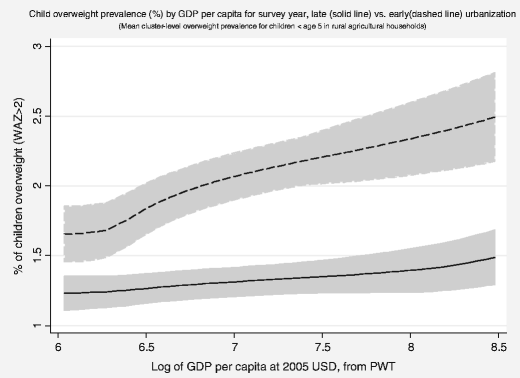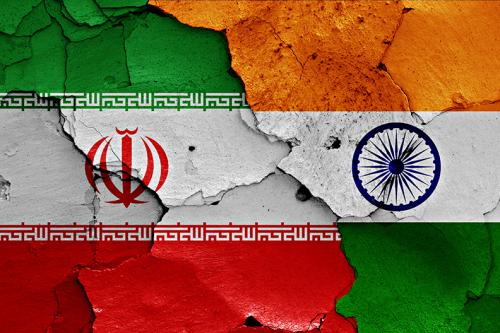Shanzay Asim |
The process of urbanization in Pakistan has an immense impact on the society and economy. It has both positive and negative consequences but needs to be scrutinized by the relevant authorities. Pakistan has always been an agricultural economy and agriculture comprises around 80% of the export base of the country and 24% of our Gross Domestic Product (GDP). With urbanization, agricultural land gets taken over and this needs to be regulated to prevent severe repercussions for Pakistan’s economy in the future. A viable solution to this is a move towards apartment living.
What has this done for us?
In Pakistan, the rural to urban shift in the population has been increasing over the years, and cities like Lahore, Karachi, and Islamabad have had to accommodate huge amounts of people.
The urban population is to expected equalize the rural population by 2030, according to some studies. This is a worrying prospect because it means that Pakistan will barely be able to sustain its own population, let alone maintain its exports. Agriculture also accounts for a major proportion of the raw material used in local industries, so a decline in agriculture is something Pakistan cannot afford. And this decline is already drawing close.
Read more: Is Pakistan making a conscious choice: removing energy crisis vs environmental disaster
According to the Minister of Commerce, Khurram Dastgir Khan, the export of agricultural commodities declined by 13.5 % during 2015-2016 as compared to 2014-2015. Another major effect is the unrelenting influx of population into cities like Lahore, Karachi, and Islamabad. In Pakistan, the rural to urban shift in the population has been increasing over the years, and cities like Lahore, Karachi, and Islamabad have had to accommodate huge amounts of people. This has naturally lead to urban sprawl, which is the process of cities spreading out over land to accommodate their rising population.
In September 2016, the Minister for National Food Security and Research announced that the government had levied a 60% tax on the import of wheat to protect the domestic farmers.
Currently, there is no law regulating the purchase and utilization of agricultural land, so large tracts of agricultural land have already been converted to residential and commercial properties. In addition, the landowners who sell these lands also cause a rise in demand for housing in cities. All of this urbanization has led to severe environmental changes and congestion in urban centers. Traffic in big cities like Lahore has become severely congested and development projects cannot keep up with the population growth. This has led to an adverse change when it comes to pollution and sanitation management. Solid waste management has become extremely costly and even then, only around 60% of the waste is disposed efficiently. There needs to be an efficient solution to manage these issues and manageable housing in apartment complexes appears to be an option that makes sense.
What can be done?
The decline in agriculture in Pakistan is a harrowing situation for the government and steps need to be taken to prevent this and to regulate the process of urbanization. One of the best ways to tackle this situation is to encourage farmers to stick to agriculture rather than sell fertile land for urban sprawl. In September 2016, the Minister for National Food Security and Research announced that the government had levied a 60% tax on the import of wheat to protect the domestic farmers. Attempts have been made to alleviate the situation such as the Prime Minister’s Agricultural Package of Rs. 341 billion and the extension of fiscal incentives in the federal budget of 2016-2017.
Read more: The downhill slope in Pakistan’s industrial development: Who is to blame?
However, these did little to resolve the situation and it was determined that short-term fiscal packages could not solve the basic structural problems faced by agriculturalists. The government needs to regulate markup rates faced by farmers and the banking sector should be encouraged to provide more microcredit to the agricultural sector. Projects can also be undertaken to link urban and rural areas without creating a shift through schemes subsidizing domestic farmers selling their goods to meet the demands of the urban population.
Apartment living can accommodate a larger number of people without taking over much land.
Long-term fiscal plans need to be put in place to revive agriculture and encourage the rural population to stay where they are and improve their standard of living through agriculture, rather than by moving to the cities and causing congestion. Projects can also be undertaken to link urban and rural areas without creating a shift through schemes subsidizing domestic farmers selling their goods to meet the demands of the urban population.
However, this process is already ongoing and immediate action needs to be taken. First of all, property expansion should move towards a vertical trend rather than spreading out over fertile land. There is already a shortage of housing and buyers in Pakistan tend to go for larger properties than the country can properly sustain. A much better alternative would be apartment living, as it can accommodate a larger number of people without taking over much land.
Smaller, vertical properties could be an efficient solution to issues related to urbanization. Apartment housing has been trending recently in Pakistan, and this is an encouraging development. Current housing is highly congested, with United Nations statistics showing the average number of occupants per room to be 3.5 as compared to 1.25 in the West. Proper regulation needs to be put in place to control the purchase and use of agricultural land and to prevent it from being built over.
Read more: Pakistan and ‘Saaf Pani’ projects: Failed projects or merely a hoax?
Urbanization has led to a worrying decline in agriculture, but if proper measures are taken, this can be controlled to the mutual benefit of rural and urban areas.
For higher efficiency, Pakistan’s cities need to have subdivisions such as councils and boroughs. This can make it easier for facilities such as transport, waste management, health, and education to be provided to all. Apartment complexes are a popular option is such divisions and come with a number of facilities. In this way, there will be less congestion and these subdivisions shall have open spaces and be spacious as the population would be divided among them rather than being concentrated in the central city. Statistics by Zameen.com show that buying and rental trends for apartments have increased even in areas like Lahore’s Gulberg, where there have traditionally been large houses. Road links and public transport can be provided to allow smooth movement between these subdivisions without creating traffic congestion. Such measures will greatly streamline and control the process of urbanization and help prevent the collapse of the agricultural sector.
In conclusion, urbanization has led to a worrying decline in agriculture, but if proper measures are taken, this can be controlled to the mutual benefit of rural and urban areas. The key things to keep in mind are the need for vertical rather than the horizontal spread of property and efficient regulation. Apartments are a quite appealing option in this case.
Shanzay Asim is a Psychology Graduate working as a writer at Zameen.com. She takes an avid interest in fiction and social issues. The views expressed in this article are the author’s own and do not necessarily reflect Global Village Space’s editorial policy.














